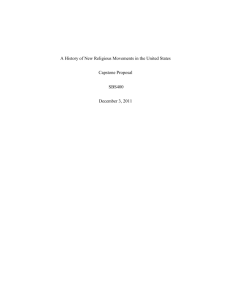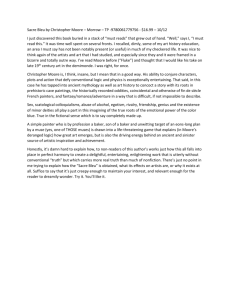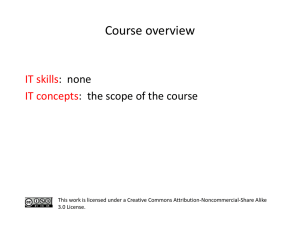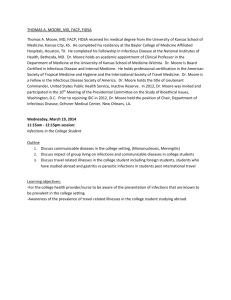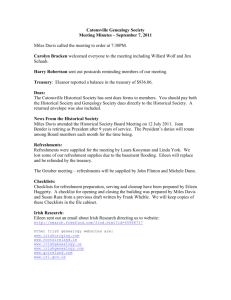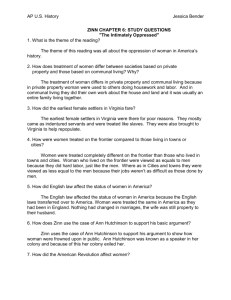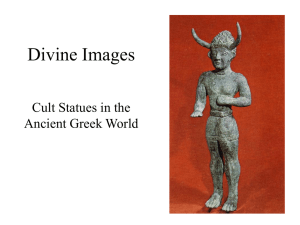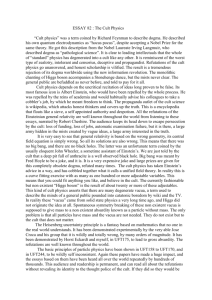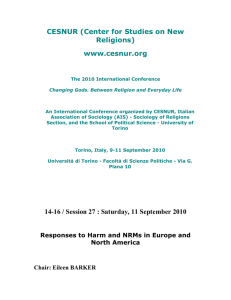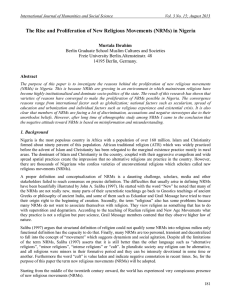Rebecca Moore: Cult is a 4-Letter Word California Pluralism Project
advertisement
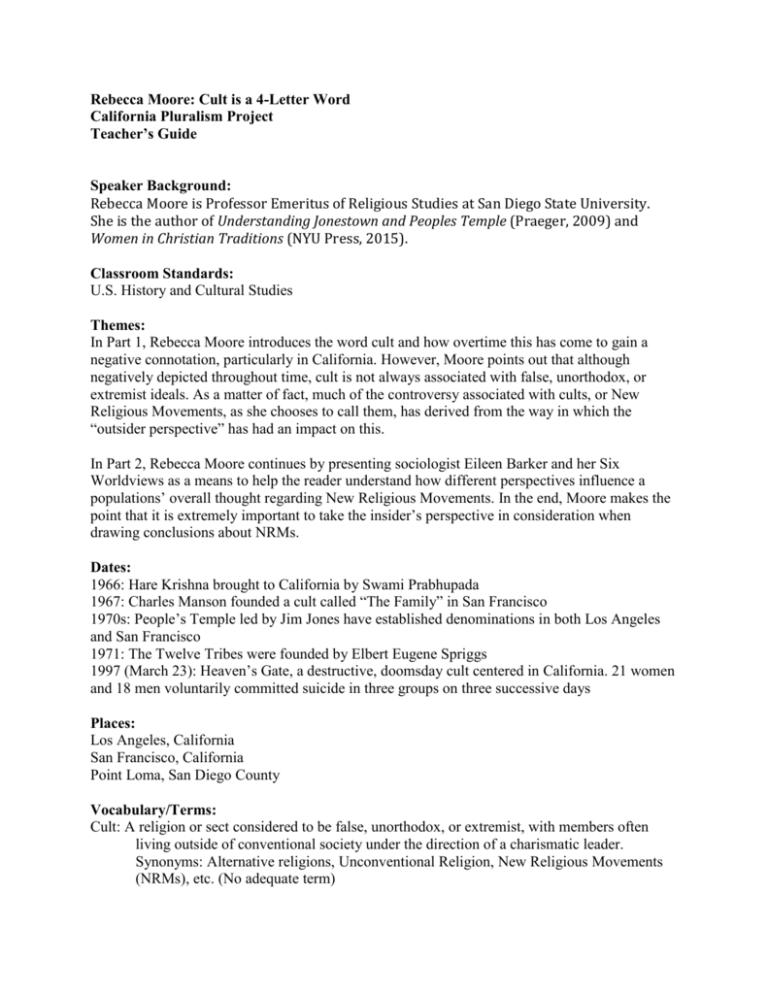
Rebecca Moore: Cult is a 4-Letter Word California Pluralism Project Teacher’s Guide Speaker Background: Rebecca Moore is Professor Emeritus of Religious Studies at San Diego State University. She is the author of Understanding Jonestown and Peoples Temple (Praeger, 2009) and Women in Christian Traditions (NYU Press, 2015). Classroom Standards: U.S. History and Cultural Studies Themes: In Part 1, Rebecca Moore introduces the word cult and how overtime this has come to gain a negative connotation, particularly in California. However, Moore points out that although negatively depicted throughout time, cult is not always associated with false, unorthodox, or extremist ideals. As a matter of fact, much of the controversy associated with cults, or New Religious Movements, as she chooses to call them, has derived from the way in which the “outsider perspective” has had an impact on this. In Part 2, Rebecca Moore continues by presenting sociologist Eileen Barker and her Six Worldviews as a means to help the reader understand how different perspectives influence a populations’ overall thought regarding New Religious Movements. In the end, Moore makes the point that it is extremely important to take the insider’s perspective in consideration when drawing conclusions about NRMs. Dates: 1966: Hare Krishna brought to California by Swami Prabhupada 1967: Charles Manson founded a cult called “The Family” in San Francisco 1970s: People’s Temple led by Jim Jones have established denominations in both Los Angeles and San Francisco 1971: The Twelve Tribes were founded by Elbert Eugene Spriggs 1997 (March 23): Heaven’s Gate, a destructive, doomsday cult centered in California. 21 women and 18 men voluntarily committed suicide in three groups on three successive days Places: Los Angeles, California San Francisco, California Point Loma, San Diego County Vocabulary/Terms: Cult: A religion or sect considered to be false, unorthodox, or extremist, with members often living outside of conventional society under the direction of a charismatic leader. Synonyms: Alternative religions, Unconventional Religion, New Religious Movements (NRMs), etc. (No adequate term) Brainwashing: Any method of controlled systematic indoctrination, especially one based on repetition or confusion. Propaganda: Information, ideas, or rumors deliberately spread widely to help or harm a person, group, movement, institution, nation, etc. Christian Science: founded by Mary Baker Eddy in 19th century New England. Basic beliefs include the ability of “resolving difficult challenges through prayer” (health, relationships, employment, etc.) Scientology: Founded by L. Ron Hubbard, 21st century. Focuses on man’s ability to seek knowledge and accomplish all things through this new found knowledge (spiritual freedom). Hare Krishna: branch of Hinduism derived from Hare Krishna chant; began in the 16th century by Sri Chaitanya in Bengal who emphasized worship of Krishna; brought to America as the International Society for Krishna Consciousness by Swami Prabhupada in 1966; based on teachings of Bhagavad-Gita and Srimad Bhagavatam. Krishna: “One of the most widely revered and most popular of all Indian divinities. Eight incarnation (avatar) of Vishnu. Basic sources of his mythology found in The Mahabharata and The Bhagavad-Gita. Eileen Barker: Sociologist of Religion at London School of Economics, studied NRMs for over 3 decades. Studied and compiled a list of the differences between primary and secondary constructions of religion (insiders’ perspective v. outsiders’ perspective). Emic Construction of Reality: What one group of people says about itself. Etic Construction of Reality: What others say about the group. Eileen Barker’s Six Worldviews: New religion itself (primary construction of reality): What do members of this new religion say about themselves? About their beliefs? Anti-cult movement (ACM): Why would a person give up certain things to join a new religion? Is brainwashing the only answer? News media: Journalists only cover NRMs that do something extraordinarily bad worthy of being exposed by the news Law enforcement/Justice system: encounter NRMs only in situations of conflict. How does this negatively affect the beliefs of NRMs? Therapeutic: Only see individuals who encounter problems and have been hurt by their involvement in the group. Scholars of new religions: look at groups in aggregate; less biased perspective, considers groups as a whole. How does the group appear? Discussion Questions: Part 1: How are cult, brainwashing and propaganda not neutral terms? How do these affect one’s perspective of new religious movements? Rebecca Moore felt the word cult was politically incorrect. How do you feel about the word or about terms being marked politically correct or incorrect in regards to the second amendment? After a society has deemed a word “bad” is it possible to reverse its value? How? Part 2: How do Barker’s worldviews allow the individual to grasp a better understanding and respect of new religious movements in California? In America? Further Reading: Barker, Eileen The Making of a Moonie: Choice or Brainwashing? (1984) Barker, Eileen New Religious Movements: A Practical Introduction (1990) Moore, Rebecca Understanding Jonestown and Peoples Temple (2013)

